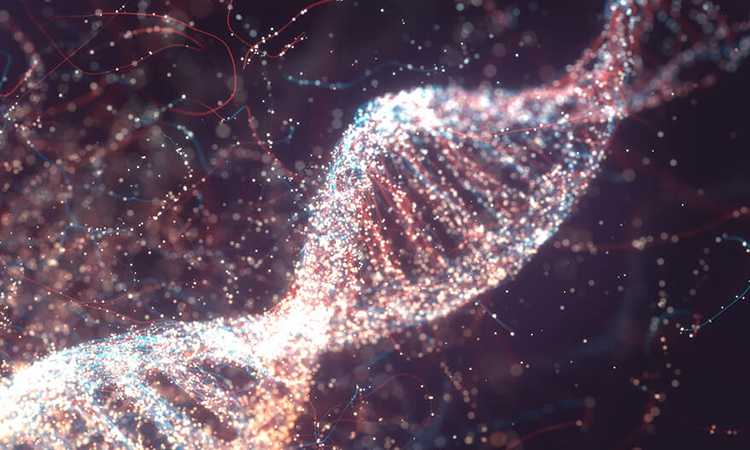
Is Alcoholism Hereditary? – Every person has the choice to drink or abstain. It doesn’t matter if your parents and grandparents were heavy drinkers or perfectly sober, the choice to consume alcohol is the same for everyone. But some compelling evidence suggests that some people may be genetically predisposed to drinking and that genetics can help determine what happens to someone who decides to imbibe.
Moreover, even if alcoholism seems omnipresent in your family, you still have the choice to drink or not – evidence suggests, however, that you’re probably going to be down to have a few. Importantly, many factors contribute to a person becoming an alcoholic, and genetics are only about half of the problem. A person’s environment, mental health, peer influence, trauma, stress level, and numerous other factors contribute to the development of alcoholism.
It’s not hard to see how certain life situations could play a part in a person’s propensity to drink. Identifying the genetic aspect of alcoholism is not as easy. It’s been common knowledge that alcoholism is about half hereditary, only recently have researchers discovered the actual genes that are believed to contribute to alcoholism.
The Purdue-Indiana University Study
A study by researchers from Purdue and Indiana University recently found that there are more than 900 genes associated with alcoholism, making this condition as genetically complex as an individual’s height. Unfortunately, the researchers also intimated that the large number of genes that contribute to alcoholism suggests that pharmaceutical treatments for the condition could be challenging to develop.
Of the 930 genes found to be associated with alcohol abuse, most were located in genetic regulatory regions, rather than coding regions. Genes found within the regulatory region are inherited, and those in the coding region are unique to the individual.
William Muir, professor of genetics at Purdue “compared coding regions to a car and regulatory regions to the gas and brake pedals that determine the car’s speed” and stated that “We all have the genes for alcoholism, but our genetic abilities to control it differ.” Because the majority of these genes were located in the regulatory region, there appears to be a significant hereditary component to alcoholism.
How Is Alcoholism Hereditary?
The way the brain transmits messages to the body is via neurotransmitters, special chemicals that allow the body to do pretty much everything. There is a multitude of different neurotransmitters, and among them, the one most associated with pleasure and reward is dopamine.
When released, dopamine produces feelings of pleasure. It can be released naturally through evolutionarily rewarding activities, such as eating and sexual intercourse, or by substances, such as drugs and alcohol. Science Daily published an article in 2007 revealing that the gene DRD2 was linked to alcoholism. They also found that the neighboring gene ANKK1 “may also be involved in addictive behaviors.”
In another study published by Newcastle University, it was found that normal mice showed no interest in alcohol and drank little or no alcohol when offered a choice between a bottle of water or a bottle of diluted alcohol. Conversely, “mice with a genetic mutation to the gene GABRB1 overwhelmingly preferred drinking alcohol over water” and chose to consume nearly 85% of their daily fluid intake as drinks containing alcohol.
There is both a positive and negative side to the researchers’ findings when it comes to alcohol addiction treatment. The negative side is that, because of the complex genetics at work in the trait of alcoholism, designing a single drug to treat it is dubious. As Muir noted, “This trait is controlled by vast numbers of genes and networks” and “this probably dashes water on the idea of treating alcoholism with a single pill.”
The Purdue-Indiana University study, however, found that the glutamate receptor signaling pathway, which is a connection of brain cells partially responsible for reward, contains a large quantity of alcoholism-related genes. Researchers state that this fact might provide a place to start for future treatment. Because modern science is now able to treat diseases based on genetic factors, the more we understand about the hereditary aspects of alcoholism, the more effective treatments we can develop.
Yet, there is one more big obstacle to finding a cure for alcoholism. Human behavior is highly unpredictable and driven by a multitude of determinants. Alcoholism may be hereditary to a certain extent, but it is not solely determined by genetics – there are many more factors that contribute to addiction.
Getting Treatment for Alcoholism: Genetics Are Not an Excuse
Humans have free will, and the choice to drink or use drugs is always ours to make. Justifying substance abuse with a genetic predisposition is irresponsible at best and fatal at worst.
Nonetheless, from a hereditary standpoint, exactly how much of that choice truly belongs to an individual becomes a bit more complicated. Alcoholism is a disease, but it happens to be one of the only diseases you can entirely prevent by making healthy decisions.
There is no single cure for alcoholism, but it can be effectively treated using a comprehensive, evidence-based treatment program that includes psychotherapy, counseling, and group support. Individuals in recovery can learn to manage cravings, prevent relapse, and, ultimately, enjoy long-lasting sobriety and wellness.
We can help you get started on the path to recovery! Call us today!
Related: Long-Term Effects of Alcohol on the Brain